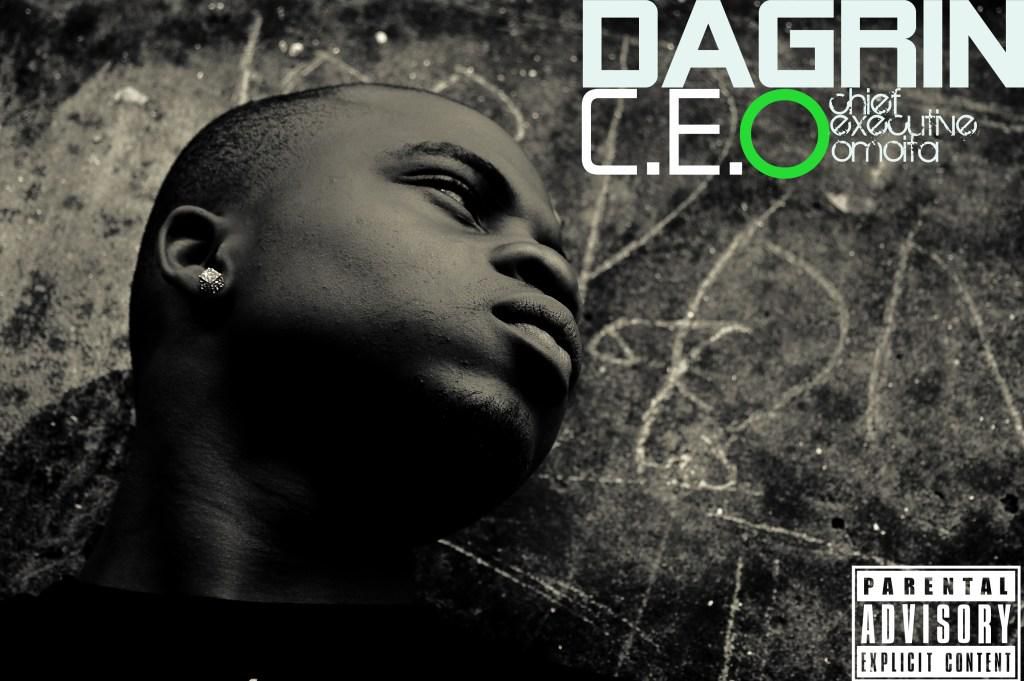The impact of street culture on Nigerian Hip-Hop
)
'Able God' by Chinko Ekun featuring Lil' Kesh and Zlatan played at every street carnival, night club, concert, rave and house party that you could think of.
The line 'no more insufficient funds' became a catchphrase for people praying for the heavens to open up and let Naira notes fall.
In the music video, the three street savvy rappers delicately stomped their feet one leg at a time before crossing their hands to form an 'X' and ending it with a kick in the air. It's called the 'Zanku' or 'legwork' or both.
'Able God' is a direct product of street culture from the bustling city of Lagos. The rappers themselves hail from the streets.
The man of the hour is Zlatan, the hottest rapper on the streets of Lagos. While 'Able God' still has a presence on streaming charts, his collaboration with Burna Boy 'Killing Dem' is bound to take over as the first bonafide hit of 2019. Zlatan formerly Zlatan Ibile has also gotten the seal of approval from Baddo. They worked together in 2018 on the track 'My Body'.
Zlatan's dance step 'Zanku' (which he claims is an abbreviation for Zlatan Abeg don't Kill Us') has taken over from the viral 'Shaku Shaku'. It is the latest influence of street culture in Nigerian rap music.
What exactly is street culture or the 'streets' as they say and how has it influenced Nigerian rap music and Hip-Hop culture?
The streets is the mecca, the Garden of Eden, the lifeblood where Hip-Hop culture gets its spiritual essence from. It's the birthplace of the struggle that led to the creation of Hip-Hop as a cultural force to address issues of economic injustice and institutional racism.
The inner cities, the slums, the project housings, ghettos are the streets.
The art of rap, dancing, deejaying, graffiti and beat-boxing, the five elements, were all created from the streets, so as other elements fashion and Hip-Hop philosophy.

What we wear, how we wear what we wear, what not to wear, gesticulations, mannerisms, lingo, slangs all stem from that origin point known as the streets.
Hip-Hop has a culture code which comes from the streets. Street culture has been fueling rap music since the late 70s. In essence, the streets is where Hip-Hop culture comes from.
The streets won't pop up in Nigeria until the 90s with the rise of the galala sound from Ajegunle and the ascent of Fuji music into the mainstream music scene. Both genres were propelled by musicians from impoverished areas.
As for rap music, street culture didn't come into play as a full force until 2009 when a rapper by the name of Dagrin released his classic sophomore effort 'C.E.O'. The album majorly produced by Sossick is the haunting tale of a gifted young rapper trapped in the lower rungs of society.

His album is a visceral collection of intimate rap songs that would inject street culture and attitude of rap music into the Hip-Hop scene. The impact his album would have would be near instantaneous, however, he wouldn't get to see the bigger impact.
Dagrin died a year later but his album had kicked the door open. Rappers such as Olamide, Reminisce and Phyno would capitalize on the opportunity to bring the streets to Nigerian rap music and vice-versa.
These breed of street rappers just like Dagrin have used their native tongues to create personal and intimate relationships with listeners, creating vignettes about life at the rock bottom.
It's no wonder that a large number of people who never used to listen to rap, could recite lyrics of street-oriented rappers.
The impact of streets culture
Street culture has brought a way of life that was previously not acknowledged, curated and celebrated. It has told the story of the underdog and the obstacles placed in front of him.
The inner-city struggles, dreams, nightmares, ambition that is in Nigerian rap music today is as a result of rappers more in tune with the streets. They have brought the attitude, lingo, and points of views from the streets into Nigerian rap music.
And you can say these things were missing in Naija rap for a long time. Prior to 2009, rap was mostly technical and a tad bit elitist by not incorporating the way of life of the oppressed in the society. This was a fundamental flaw because Hip-Hop is all about championing the underdog and the unheard.
The streets, street culture is the life source of Hip-Hop and it's not a coincidence that the rise of indigenous rappers (who are by default the street rappers) coincided with more people from the slums listening to more rap music. Just think about it, Phyno sells out a stadium yearly. It won't be shocking that most of the people who show up at PhynoFest yearly have never heard of Rakim or Wu-Tang Clan.
Dancing is a core element of Hip-Hop. Prior to streets rappers taking over, dance was a not visible element in Nigerian rap music.
In 2014, rapper Lil Kesh would popularize the dance step 'Shoki', that originated from Agege, making it a fave in Africa and certain parts of the world.
The Generalissimo of the streets, Olamide, was behind the shakitibobo dance. He also popularized the 'shaku shaku', another dance move originated from Agege.
And yes we have the Zanku.
In essence, street culture has added grit, colour and vibrancy to Nigerian Hip-Hop. It is telling the tale of those who were neglected for quite a while in our society. It is also creating something of a Hip-Hop culture that Nigerian rap music badly needs.
South African rap has been able to infuse its street culture to make it vibrant and intimate to people trapped in poverty. It's a blueprint that should work wonders in Nigeria but that's a topic for another day.

)
)
)
)

)
)
)
)
)
)
)
)
)
)